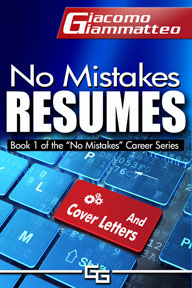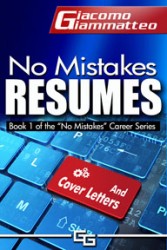Two-Dollar Words
Many people think that the bigger the word you use the better it sounds. They seem to equate the number of syllables, or scarcity of word usage to sounding scholarly. What these people don’t understand is that the trick is not to find the biggest word, but the word that works best in that situation.
I was reviewing a resume the other night and the person had used the word “utilize” eight times in a two-page resume. Let’s not even talk about the number of times; instead, let’s discuss utilize and whether it should be used on resumes.
The definition of utilize is below:
uti·lize transitive verb \ˈyü-tə-ˌlīz\
- : to use (something) for a particular purpose
Examples From Resumes
(BTW, I had 548 resumes that had utilize on them.)
- Able to utilize PC-based software including: Word, Excel, and Microsoft Project.
- Utilize Pro Engineer tools for all mechanical designs.
- Seeking a challenging manufacturing position to utilize my diversified experience and qualifications.
In all of these cases we could have substituted used for utilized and not only would we have saved space, it would have sounded less pretentious. In fact, if you search the Internet for pretentious words used in business, you’ll likely run across our friend utilize in one or two of the lists. But utilize is far from a lone offender. Business writing, and resumes in particular, are rife with examples.
 More Two-Dollar Words
More Two-Dollar Words
Consider these gems pulled from resumes.
- A drug being developed by XYZ Co. is expected to commence Phase II clinical testing in 2014.
- Focuses on the overall picture to ascertain needs and goals, identify difficulties, and design effective…
- Hired outside contract engineer to finalize the drawings.
- Facilitated transition of product line from…
In each of these statements, the person would have been better off using a simpler word. Instead of…
- Commence—use begin
- Ascertain—use determine
- Finalize—finish or complete
- Facilitated—helped or eased
Resumes are not the place to practice your vocabulary. This is not a contest to see who can send the gatekeeper to the dictionary first or most often.
Practical Advice
Resist the urge to use big words. Never pull out a thesaurus. And make sure you’re not being redundant. Simple is good when it comes to word choice.
Here’s another suggestion—any time that you think you’re being clever or smart by using a word that will wow someone. Stop! Look at the word you used. Is it the best word? Does it say exactly what you want? Can you find a better, simpler word to use? If you can, do it.
Bottom Line
Nobody is ever going to look at your writing and think, he should have used “commence” instead of “begin.” Or, she could have replaced “used” with “utilized.” I promise you. It will never happen. But the flip side of that might, and will, happen. So do yourself a favor. Take a hard look at your resume, and all of your writing. Seek out the $2 words, and replace them with 50c ones. You, and whoever is reading your resume/email/contract or any other document, will be happy you did.
If you enjoyed this post, please share.
If you want the info graphic for this, click the button below.
Two-Dollar Words – download pdf






















I agree with your premise that you should use the most appropriate / simplest word that clearly communicates your intent. However, I believe you erred when you put “facilitated” on the list. In the field of Process Improvement and Project Management, “facilitation” is a very specific set of actions that guides a team through the process. It differs from Team Leadership in that the facilitator does not need to be an expert in or the “owner” of the process being examined. The facilitator’s expertise is in the team process and the tools that are used.
Twitter: JimGiammatteo
says:
Linda: Thanks for stopping by, and more thanks for the comment. In this case I have to agree with you. There are times and reasons why a person might want to use facilitate. My issue with the word is the many times it is used and shouldn’t be, but in the instance I cited, using facilitated was fine. I should have chosen a better example. Thanks for the correction.
These are good tips. I have has several conversations with people who throw these words into everyday conversations while not actually saying anything.
I don’t know how many times I have written “in order to…” and then erased “in order” to simply have “to” (i.e. “I completed my MBA in order to further my career… etc, etc.”. You can see how the “in order” is redundant.
Twitter: JimGiammatteo
says:
Edward, thanks for stopping by, and yes, you’re right about the “in order to,” in fact, I just finished writing a post on redundancies and will put it up in a few weeks. It’s tough to get used to writing clearly, but it makes a big difference. Have a great holiday weekend.
Twitter: none
says:
My dad used to say, “Never use a big word when a diminutive one will suffice.” Good words to live by with a little humor to keep us real.
Twitter: JimGiammatteo
says:
John, I love your dad’s sense of humor. I’ll have to remember that one. And thanks for stopping by and commenting.
Preposterous conceptualization. Do remember to KISS.
Twitter: JimGiammatteo
says:
love it, Paul.
Wasn’t “utilize” picked as the pseudo-intellectual word of the year by the APA in the 70s?
Twitter: JimGiammatteo
says:
I think you’re right, Sunny. But then again, they told us coffee was bad for you back then, too. Thanks for dropping by. I appreciate it.
I like watching old pictures and my vocabulary grows more tremendous as I get older. I’m sure most people are like that perhaps. It seems like a “$2 word” is outdated and not used by so many in contemporary society? I’m overseas in the Philippines, I think they might not know or want to deal with that expression. I know I could do a search on this so maybe I’m just too lazy to do that, but is there a more updated and widely used term maybe equivalent to a “$2 word” these days? Thank you.